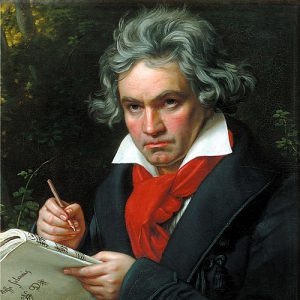
Editor’s Note: McGill’s School of Continuing Studies’ PRIZMA program is offering a unique six-lecture, six-concert program exploring the genius of Beethoven, beginning on April 18 (in English) and April 19 (in French). Gain insight into the man, his work and his time – and hear his music with a greater understanding of its expression. Richard Turp, musicologist, Artistic Director of the Lachine Music Festival and course leader offers a preview of the program.
By Richard Turp
The series of six lectures offered by McGill University’s School of Continuing Studies’ PRIZMA program under the title of Beethoven – the Romantic passion is inextricably linked to the presentation of Beethoven’s sixteen string quartets during the 2017 edition of the Montreal Chamber Music Festival.
These string quartets represent one the collective summits of classical music and are monumental both in their importance to the history of music and to Beethoven’s life and career. In many respects, Beethoven’s string quartets can be seen as being an autobiographical thread, an artistic leitmotif or fil conducteur of his fascinating and compelling life. His music also mirrors and reflects many of the philosophical, geopolitical and social changes that occurred during his lifetime.
A force of nature and a great humanist, Ludwig van Beethoven emerged from the Sturm und drang epoch of the late 18th century and launched the 19th century towards a quest for the French revolutionary ideals of “Liberté, égalité et fraternité.” His belief in social justice, artistic freedom and truth were as constant as his belief in his destiny as a composer. The lectures and the concerts will help illustrate the essential role played by destiny and the notion of heroism not only in his personal life but in his artistic life and will seek to demonstrate how they coloured his view of humanity and his own creative process.
Beethoven not only represented the so-called classical age in which he evolved and lived, but, like all legendary transitional figures, he anticipated and embodied what was to come, the so-called Romantic era. He was and has remained an artistic colossus, the impersonation of the idea of ‘mind over matter,’ so much more a man than a myth.
Musicologist Richard Turp leads the six-part lecture series Beethoven: Passion romantique, offered in both English (beginning April 18) and French (beginning April 19). Get more information.
The extraordinary young American Dover Quartet performs the complete Beethoven string quartets at the Montreal Chamber Music Festival over six concerts, starting May 26. Get more details and ticket information.
